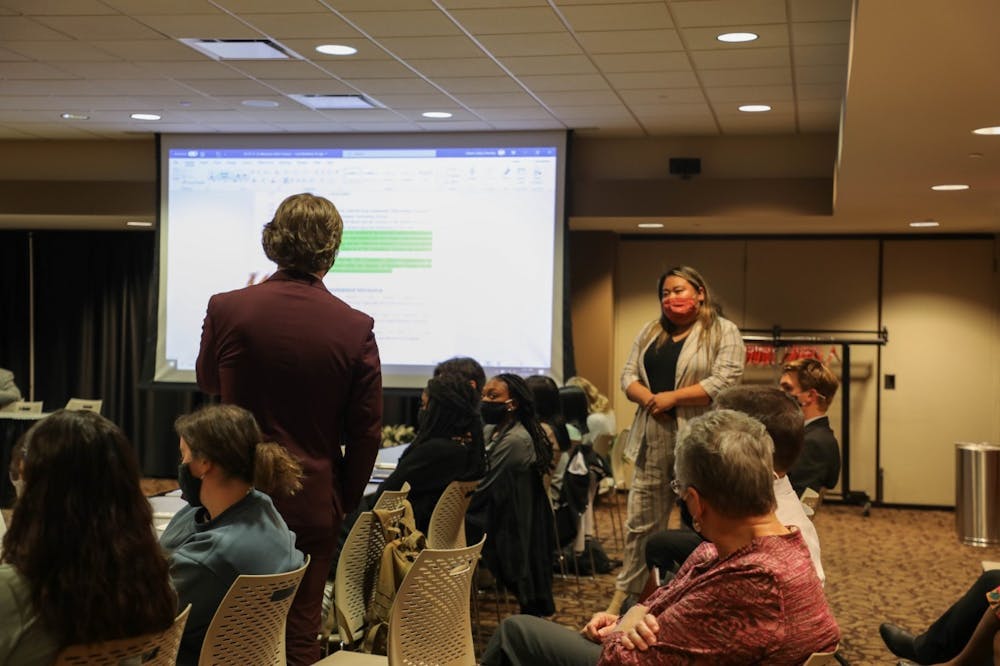Editor's Note: A previous version of this article incorrectly stated an amendment proposed to require executive board candidates to attend a number of senate meetings, but it has been corrected to attending semesters worth of classes.
Ball State’s Student Government Association (SGA) introduced a new amendment to its elections code concerning a minimum voter turnout requirement for executive board elections.
The amendment will require a minimum of 2,000 students to vote in the executive board elections if passed. If this minimum is not met, then “powers would then be granted to the student senate to nominate prospective board members,” according to the amendment.
The amendment was proposed in response to the low voter turnout seen in the past three slate elections on campus. Last year, SGA voted against a similar amendment that proposed to implement a 10-percent minimum voter turnout from the student body in each election.
RELATED: Ball State SGA introduces new executive tickets, presents 'State of the Senate' address
Senator Grant Wilson, a co-author of the newly proposed amendment, said the minimum voter turnout proposed in his amendment is less than 10 percent of the student body.
SGA Vice President Chiara Biddle read the new amendment to the senate before co-authors President Pro Tempore Davis Odom and Wilson answered questions about it.
Odom said Ball State is the only Mid-American Conference (MAC) school with this low voter turnout issue. Other MAC schools have their “student bodies reach well over 70 percent,” Odom said.
The time allotted for discussion about the amendment was extended over the set seven minutes multiple times.
Senators voiced their concerns over the student body’s voting rights and if students’ voices would be truly represented if the minimum was not reached.
Both authors answered this new amendment would encourage a higher voter turnout and more involvement with SGA.
On the concerns of student representation voiced by Senator Sarah Owens, Wilson said because anyone can apply to be a senator, there is representation. He then said the amendment is meant to “incentivize tickets to put their name out more.”
SGA President Tina Nguyen said not everyone can be a senator due to the GPA requirement, which is 2.5.
The amendment will be voted on at the next meeting Nov. 17.
Another amendment introduced in the meeting proposed to change the requirements for the executive members of SGA so the positions are open for more candidates. If passed, the amendment will require the SGA president to attend classes at Ball State for at least three full semesters before running for office, and the vice president, chief administrator and treasurer will need to attend at least two full semesters.
Also in the meeting, three senators accepted nominations for the position of President Pro Tempore. The position will be voted on at the next meeting.
Senators Monet Lindstrand, Auston Everman and Jessea Vaughn are the nominees who accepted. Wilson was also nominated, but declined the position.
The Student Service Committee also had its $180 budget request for its upcoming “Make Friends” event approved 38-1. The event is meant for people to meet new students, and it will mimick a speed-dating format.
The ROTC student priority scheduling resolution introduced at last week’s meeting was approved 38-1. It will go onto University Senate for approval or denial at the next stage of changing Ball State policies.
The standardized standing committee roles amendment was voted on, and it was approved 36-1 with two abstentions.
Contact Hannah Amos with comments at hannah.amos@bsu.edu or on Twitter @Hannah_Amos_394.





